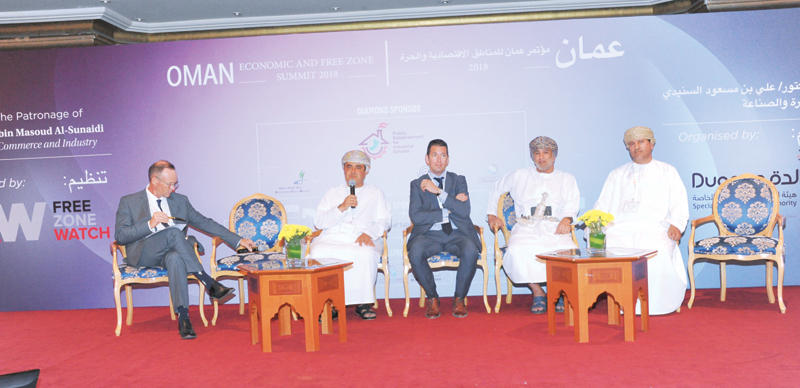

Freezones and the economic zone of Duqm, the industrial cities and the main ports of Suhar, Salalah and Duqm posses great potential for huge foreign investments and are all poised to be sources of major national income in future, according to Yahya bin Saeed al Jabri (pictured), Chairman of the Special Economic Zone at Duqm (SEZAD).

In his keynote address at the 2-day Oman Economic and Free Zone Summit held under the auspices of Dr Ali bin Masoud al Sunaidy, Minister of Commerce and Industry, Al Jabri noted that freezones are growing at an exponential rate thanks to the importance attached to these zones in the face of challenges facing the economic growth in the country.
“There is no doubt that the freezones in the Sultanate, the economic zone of Duqm and the industrial zones of the Public Authority of Industrial Estates (PEIE) are the main building blocks of the national programme for development and economic diversification of the Sultanate. All these efforts are to provide lessons on the mechanism of maximising their contribution to the GDP of the Sultanate in congruence with the Oman Vision 2040”, Al Jabri noted.
Organised by SEZAD in cooperation with Free Zone Watch Company, the summit is expected to touch upon major economic drivers and to explore investment options in these areas. The summit will also share the Omani experience accumulated over three decades in the field of establishing and managing free zones, industrial cities and special economic zones, besides conducting dialogue on successes.
“The Sultanate is linked to the supply chain and added value at the regional and global levels through which the comparative advantage of the country in terms of political stability, geographical location and global shipping lines are made use of, thanks to the Suhar, Salalah and Duqm ports”, he added.
Additionally, the country has also secured energy supplies and preferential trade relations under bilateral and multilateral Free Trade Agreements (FTA’s) that allow access to global consumer markets with a population of about 1 billion.
Al Jabri noted that a large chunk of oil revenues and national financial savings has been allocated to the development budgets of the State for the establishment of infrastructure from ports, airports, road networks, power plants, water desalination and distribution networks to advance the comprehensive social development process throughout the country as a result of the foresight and future vision.
“All these have provided the opportunity to accelerate the pace of economic diversification on sound and sustainable structural foundations through the adoption of a set of policies, which improve the investment climate and the business environment, raise the productivity and efficiency of state-owned enterprises, establish strategic partnerships between the public and private sectors, and support SME’s. All these are interrelated and in order to facilitate access to the factors of production, we need highly promising economic sectors such as tourism, mining, food-based industries, food and fishery industries, education and training development, and the like. We are marching towards enviable growth in all these sectors”, he added.
Oman Observer is now on the WhatsApp channel. Click here



